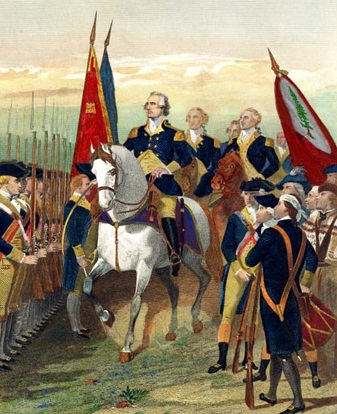Introduction
In 1775 when the American Revolutionary War broke out the American colonists did not have a good chance of winning. Britain had a large well trained army and the best navy in the world. On the other hand, the Americans had a disorganized collection of state militias and their navy was very small. However due to many factors, not the least of which was the determination and bravery of the American soldiers, the colonists pulled off an amazing upset and won their independence.Click here for a great selection of American Revolutionary War books at Amazon.
Timeline of the American Revolutionary War
- Many events led up to the war that prompted colonists to seek their independence from Britain. These events include the Boston Massacre, the Stamp Act, Sugar Act, and the Quartering Act.
- Many colonists felt that they were being treated unfairly by Great Britain. One of the main complaints was that they were being unfairly taxed; one of the main rallying cries of the war was "No Taxation Without Representation".
- On September of 1774 twelve out of the thirteen colonies (Georgia did not attend) met in Philadelphia. This meeting was called the First Continental Congress. The purpose of the meeting was to discuss how to react to the Intolerable Acts passed by Britain.
- The first battles of the war occurred in April of 1775 in Lexington and Concord Massachusetts. Eight colonists and seventy British soldiers were killed.
- Starting in the summer of 1775, after the armed conflict had begun, the Second Continental Congress started meeting. Over several months, this group gradually worked towards the signing of the Declaration of Independence in 1776. This Congress managed the war effort in numerous ways including raising an army and developing a strategy.
- There were many major battles of the American Revolutionary War. Visit our page on these major battles.
- The Battles of Saratoga, fought on September 19 and October 7 of 1777, are widely regarded as the turning point of the American Revolution. The decisive American victory encouraged France to enter a crucial alliance with the Americans.
- Although minor fighting continued for two more years the war basically ended in October 1781 when British General Cornwallis surrendered at Yorktown, Virginia. The Treaty of Paris officially ended the war two years later.
Advantages the Colonists had in the American Revolutionary War
- The continental army had a lot of support from the colonists; most colonists were patriots.
- The colonists were fighting on their home turf with which they were very familiar; unlike the British who were not on familiar ground.
- The British had to wage war from across the Atlantic Ocean which was a huge disadvantage. Troops and supplies had to travel a great distance.
- The patriots received crucial aid from France in the form of supplies and military support. Military advisors like Marquis de Lafayette helped train the colonists in the art of warfare.
- The use of guerilla warfare tactics, not common at that time, often caught the British by surprise.
- The Americans had the great advantage of being led by General George Washington; one of the greatest military commanders in history.
